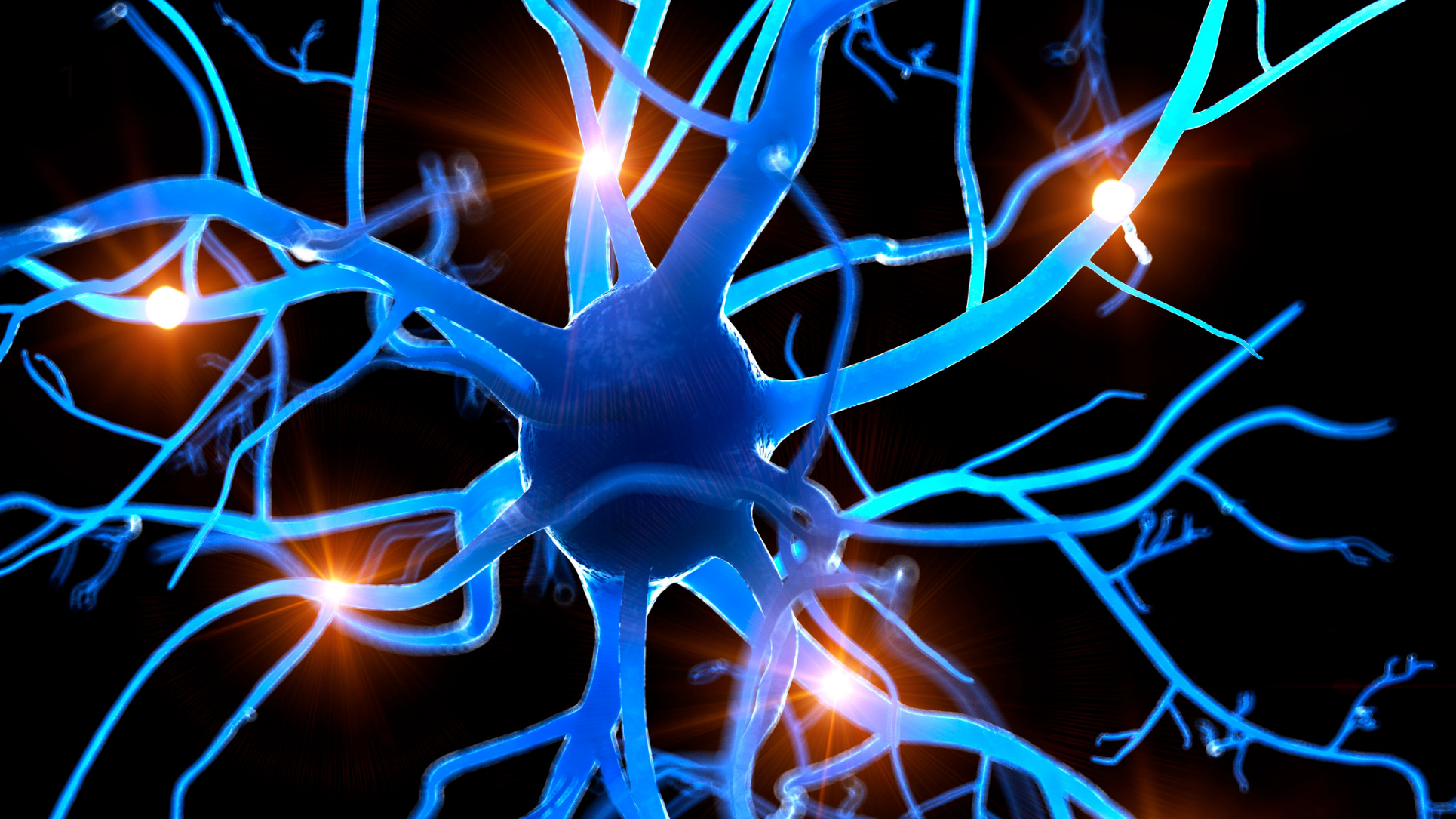Introduction
The leading researches in the field of mental health, have observed a critical, yet often underestimated, intersection between chronic physical conditions and psychological well-being. Among these, the relationship between diabetes and mental health stands out as particularly profound and bidirectional.
Diabetes, a global public health challenge affecting millions, demands relentless self-management and lifestyle adjustments. This constant vigilance, coupled with the physiological impacts of the disease, creates a fertile ground for the emergence or exacerbation of various mental health conditions. Conversely, mental health disorders can significantly impede effective diabetes management, leading to poorer health outcomes and a diminished quality of life.
This article delves into the intricate connections between diabetes and mental health, exploring the prevalence of common psychological challenges, the underlying mechanisms, and the crucial importance of integrated care approaches. We will examine the scientific literature to shed light on this complex interplay, providing insights and actionable knowledge for individuals living with diabetes, their caregivers, and healthcare professionals.
The Dual Burden: Prevalence of Mental Health Challenges in Diabetes
The burden of diabetes extends far beyond its physiological manifestations, often encompassing significant psychological distress. Research consistently demonstrates a heightened prevalence of mental health disorders among individuals with diabetes compared to the general population. This ‘dual burden’ necessitates a comprehensive understanding of the specific mental health challenges faced by this demographic.
Depression: A Common Comorbidity
Depression stands as one of the most frequently observed mental health comorbidities in individuals with diabetes. Studies indicate that people with diabetes are two to three times more likely to experience depression than those without the condition. This elevated risk is a critical concern, as depression can profoundly impact an individual’s ability to adhere to complex diabetes management regimens, leading to suboptimal glycemic control, increased risk of complications, and higher healthcare costs.
Alarmingly, a significant proportion of individuals with diabetes who experience depression remain undiagnosed and untreated, with estimates suggesting that only 25% to 50% receive appropriate care.
The symptoms of depression in this population are consistent with those in the general population, including persistent sadness, loss of interest in activities, changes in appetite or sleep patterns, fatigue, difficulty concentrating, feelings of hopelessness, irritability, and in severe cases, thoughts of self-harm. The bidirectional nature of this relationship is also well-established: while diabetes increases the risk of depression, depression itself is a recognized risk factor for the development of type 2 diabetes. Furthermore, depression can accelerate the onset of diabetes complications and worsen existing ones.
Anxiety: The Constant Companion
Beyond depression, anxiety disorders are also highly prevalent among individuals with diabetes. People with diabetes are approximately 20% more likely to experience anxiety compared to their non-diabetic counterparts. The constant demands of diabetes self-management—including blood glucose monitoring, medication adherence, dietary restrictions, and the fear of complications—can be a significant source of chronic stress and anxiety. This persistent worry, fear, or feeling of being on edge can interfere with daily life and further complicate diabetes care. It is important to note that symptoms of anxiety can sometimes mimic those of hypoglycemia (low blood sugar), making it challenging for individuals to differentiate between the two and respond appropriately.

Diabetes Distress: A Unique Challenge
Distinct from clinical depression or anxiety, ‘diabetes distress’ is a common and significant emotional burden experienced by many individuals with diabetes. It encompasses feelings of discouragement, worry, frustration, and being overwhelmed by the relentless demands of daily diabetes care. This distress can arise from various factors, such as struggling to meet glycemic targets, developing diabetes-related complications despite best efforts, or simply the sheer exhaustion of managing a chronic condition over many years.
Special: Pineal Pure: Designed to Help Support Memory Function And Brain Health. More HERE
Diabetes distress is remarkably prevalent, affecting 33% to 50% of individuals with diabetes within any 18-month period. Crucially, diabetes distress often presents similarly to depression or anxiety but does not respond to conventional antidepressant or anxiolytic medications. Instead, it requires targeted interventions focused on problem-solving, emotional support, and practical strategies for diabetes management.
Other Mental Health Considerations
While depression, anxiety, and diabetes distress are the most common mental health challenges, other conditions also warrant attention. For instance, individuals with diabetes, particularly type 2, may experience higher rates of eating disorders, which can severely compromise glycemic control and overall health. Furthermore, there is a strong association between diabetes and psychotic conditions like schizophrenia. Individuals with schizophrenia have a significantly higher risk of developing type 2 diabetes, and the co-occurrence of both conditions is linked to increased mortality rates. This complex interplay is influenced by genetic predispositions, lifestyle factors, and the metabolic side effects of certain antipsychotic medications.
The Bidirectional Interplay: Understanding the Mechanisms
The intricate relationship between diabetes and mental health is not merely coincidental; it is a complex bidirectional interplay driven by a confluence of physiological, psychological, and social factors. Understanding these underlying mechanisms is crucial for developing effective integrated care strategies.
How Diabetes Impacts Mental Health
Several pathways explain how living with diabetes can contribute to mental health challenges:
• Physiological Stress and Inflammation: Chronic hyperglycemia and the metabolic dysregulation associated with diabetes can lead to systemic inflammation and oxidative stress. These physiological stressors have been implicated in the pathophysiology of mood disorders, affecting neurotransmitter systems and neuronal function.
• Neurobiological Changes: Diabetes can induce changes in brain structure and function, including alterations in brain regions involved in mood regulation and cognitive processing. Insulin resistance in the brain, for example, has been linked to cognitive decline and an increased risk of depression.
• Hypoglycemia and Hyperglycemia: Fluctuations in blood glucose levels can directly impact mood and cognitive function. Hypoglycemia can cause acute anxiety, irritability, and confusion, while chronic hyperglycemia can lead to fatigue, lethargy, and difficulty concentrating, all of which can contribute to depressive symptoms .
• Burden of Self-Management: The daily demands of diabetes care—monitoring blood sugar, administering insulin or taking oral medications, adhering to dietary restrictions, and engaging in regular physical activity—can be overwhelming. This constant vigilance and the fear of complications (e.g., neuropathy, retinopathy, nephropathy) can lead to significant psychological burden, stress, and burnout.
• Complications and Disability: The development of diabetes-related complications, such as nerve damage, kidney disease, vision loss, or cardiovascular issues, can lead to physical pain, functional limitations, and a loss of independence. These challenges can profoundly impact an individual’s quality of life and contribute to feelings of sadness, hopelessness, and isolation.
How Mental Health Impacts Diabetes Management and Outcomes
The influence is not unidirectional; mental health conditions can significantly impair diabetes management and worsen health outcomes:
• Impaired Self-Care Behaviors: Depression and anxiety can lead to reduced motivation, energy, and self-efficacy, making it difficult for individuals to adhere to their diabetes care plan. This can manifest as skipping medication doses, poor dietary choices, reduced physical activity, and infrequent blood glucose monitoring, all of which contribute to poorer glycemic control.
• Physiological Effects of Stress Hormones: Chronic stress and anxiety can activate the hypothalamic-pituitary-adrenal (HPA) axis, leading to increased production of stress hormones like cortisol. These hormones can directly elevate blood glucose levels and contribute to insulin resistance, making diabetes harder to manage.
• Inflammation and Immune Dysfunction: Mental health disorders, particularly depression, are associated with chronic low-grade inflammation. This systemic inflammation can exacerbate insulin resistance and contribute to the progression of diabetes and its complications.
• Cognitive Impairment: Some mental health conditions, such as severe depression, can be associated with cognitive deficits, including problems with memory, attention, and executive function. These impairments can hinder an individual’s ability to understand and follow complex medical instructions or manage their diabetes effectively.
• Healthcare Engagement: Individuals struggling with mental health issues may be less likely to attend medical appointments, communicate openly with their healthcare providers, or seek support for their diabetes, leading to delayed diagnosis of complications and less effective treatment.

Towards Holistic Health: Integrated Care Approaches and Strategies for Well-being
Given the profound and bidirectional relationship between diabetes and mental health, a fragmented approach to care is no longer sufficient. The paradigm must shift towards integrated care, where physical and mental health are addressed synergistically. This holistic approach not only improves mental well-being but also leads to better diabetes outcomes and an enhanced quality of life.
The Imperative of Integrated Care
Integrated care models emphasize collaboration between diabetes care teams and mental health professionals. This can involve co-located services, shared electronic health records, and regular communication to ensure a coordinated and patient-centered approach. Key components of integrated care include:
• Routine Screening: Regular screening for mental health conditions, including depression, anxiety, and diabetes distress, should be a standard part of diabetes care. Early identification allows for timely intervention and prevents escalation of symptoms .
• Collaborative Care Teams: A multidisciplinary team approach, involving endocrinologists, primary care physicians, diabetes educators, dietitians, and mental health specialists (psychologists, psychiatrists, social workers), is crucial. Each member contributes their expertise to address the multifaceted needs of the patient.
• Patient Education: Educating patients about the mind-body connection and the commonality of mental health challenges in diabetes can reduce stigma and encourage them to seek help. Understanding that these feelings are a normal response to a chronic condition can be empowering.
Effective Interventions and Strategies for Well-being
A range of evidence-based interventions and strategies can be employed to support the mental well-being of individuals with diabetes:
Psychological Therapies:
• Cognitive Behavioral Therapy (CBT): CBT is highly effective for treating depression and anxiety in individuals with diabetes. It helps patients identify and challenge negative thought patterns and develop coping mechanisms for stress and self-management challenges.
• Motivational Interviewing: This approach helps individuals explore and resolve ambivalence about behavior change, fostering intrinsic motivation for diabetes self-care.
• Positive Psychology Interventions: These interventions focus on cultivating positive emotions, strengths, and meaning. Examples include gratitude practices, acts of kindness, and identifying personal strengths. Studies show that these can increase well-being and reduce depressive symptoms.
• Mindfulness-Based Interventions: Practices such as mindfulness-based stress reduction (MBSR) can significantly reduce anxiety, depression, and stress. Mindfulness helps individuals develop a non-judgmental awareness of their thoughts and feelings, improving their ability to cope with the demands of diabetes.
• Resilience-Based Interventions: Building resilience helps individuals adapt to adversity and bounce back from challenges. These interventions can equip patients with strategies to navigate the ups and downs of living with diabetes .
Lifestyle Modifications:
• Physical Activity: Regular exercise is a powerful antidepressant and anxiolytic. It also directly improves glycemic control and overall physical health.
• Healthy Eating: A balanced diet supports both physical and mental health. Nutritional counseling can help individuals make food choices that manage blood sugar and promote well-being .
• Adequate Sleep: Sleep deprivation can worsen mood and impair glycemic control. Prioritizing good sleep hygiene is essential.
• Stress Management Techniques: Simple techniques like deep breathing exercises, progressive muscle relaxation, and engaging in hobbies can help manage daily stress.
• Peer Support: Connecting with others who have diabetes can provide invaluable emotional support, reduce feelings of isolation, and offer practical advice for coping with the condition.
Conclusion: A Call for Holistic Care
The intricate dance between diabetes and mental health underscores the necessity of a holistic approach to patient care. It is no longer sufficient to treat diabetes as a purely physiological condition, nor to address mental health in isolation. The evidence is clear: the two are inextricably linked, with each profoundly influencing the other.
By recognizing this bidirectional relationship, healthcare providers can move towards integrated models of care that prioritize routine mental health screening, foster collaborative multidisciplinary teams, and empower patients with effective psychological and lifestyle interventions. For individuals living with diabetes, understanding these connections can be a powerful step towards self-advocacy and seeking the comprehensive support they deserve.
Ultimately, by nurturing both physical and mental well-being, we can significantly improve the lives of those affected by diabetes, leading to better health outcomes, enhanced quality of life, and a more resilient journey with their condition.
Special: Pineal Pure: Designed to Help Support Memory Function And Brain Health. More HERE
References
[1] Alzoubi, A., Abunaser, R., Khassawneh, A., Alfaqih, M., Khasawneh, A., & Abdo, N. (2018). The Bidirectional Relationship between Diabetes and Depression: A Literature Review. Korean Journal of Family Medicine, 39(3), 137–146. https://pmc.ncbi.nlm.nih.gov/articles/PMC5975983/
[2] Centers for Disease Control and Prevention. (2024, May 15). Diabetes and Mental Health. https://www.cdc.gov/diabetes/living-with/mental-health.html
[3] Akhaury, K., & Chaware, S. (2022). Relation Between Diabetes and Psychiatric Disorders. Cureus, 14(10), e30733. https://pmc.ncbi.nlm.nih.gov/articles/PMC9699801/
[4] Massey, C. N., Feig, E. H., Duque-Serrano, L., Wexler, D., Moskowitz, J. T., & Huffman, J. C. (2018). Well-Being Interventions for Individuals with Diabetes: A Systematic Review. Diabetes Research and Clinical Practice, 147, 118–133. https://pmc.ncbi.nlm.nih.gov/articles/PMC6370485/
Questions and Answers
Q1: What is the primary connection between diabetes and mental health?
A1: The connection is bidirectional. Living with diabetes significantly increases the risk of developing mental health conditions like depression and anxiety due to the demands of self-management and physiological impacts. Conversely, mental health disorders can severely impair an individual’s ability to manage their diabetes effectively, leading to poorer physical health outcomes.
Q2: How common are depression and anxiety in people with diabetes?
A2: People with diabetes are two to three times more likely to experience depression and about 20% more likely to experience anxiety compared to the general population. A significant number of these cases often go undiagnosed and untreated.
Q3: What is ‘diabetes distress’ and how does it differ from depression?
A3: Diabetes distress refers to the emotional burden and overwhelming feelings associated with the daily demands of diabetes self-care. Unlike clinical depression, it does not typically respond to antidepressant medications. Instead, it requires targeted interventions focused on problem-solving, emotional support, and practical strategies for managing diabetes.
Q4: Can mental health issues affect blood sugar levels?
A4: Yes, absolutely. Chronic stress and anxiety can lead to increased production of stress hormones like cortisol, which can directly elevate blood glucose levels and contribute to insulin resistance. Additionally, mental health conditions can impair self-care behaviors, leading to inconsistent medication adherence, poor dietary choices, and reduced physical activity, all of which negatively impact glycemic control.
Q5: What are some effective strategies for managing mental health alongside diabetes?
A5: Effective strategies include integrated care models that combine diabetes management with mental health support. This involves routine screening for mental health conditions, collaborative care teams, and patient education. Psychological therapies like Cognitive Behavioral Therapy (CBT), Positive Psychology interventions, and Mindfulness-Based Interventions are highly effective. Lifestyle modifications such as regular physical activity, healthy eating, adequate sleep, and stress management techniques also play a crucial role. Peer support can also be very beneficial.
Q6: Where can individuals with diabetes find support for their mental health?
A6: Individuals should first communicate their concerns with their healthcare team, including their endocrinologist or primary care physician, who can provide referrals to mental health professionals specializing in chronic health conditions. Diabetes educators can also offer valuable support and problem-solving strategies. Additionally, peer support groups and mental health hotlines can provide immediate assistance and a sense of community.
Resources
For individuals seeking support and further information regarding diabetes and mental health, the following resources are highly recommended:
• American Diabetes Association (ADA): The ADA provides comprehensive information on diabetes care, including sections dedicated to mental health and emotional well-being. Their website offers articles, tools, and support group information. (www.diabetes.org)
• Centers for Disease Control and Prevention (CDC) – Diabetes: The CDC offers valuable insights into managing diabetes, with specific resources addressing the mental health aspects of living with the condition. (www.cdc.gov/diabetes)
• National Institute of Mental Health (NIMH): For general information on mental health disorders, symptoms, and treatment options, the NIMH is a reliable source. (www.nimh.nih.gov)
• Mental Health America (MHA): MHA provides resources, advocacy, and information on various mental health conditions, including how they intersect with chronic illnesses like diabetes. (www.mhanational.org)
• Professional Support:
• Endocrinologists: Specialists in diabetes care who can help manage the physical aspects of the disease and understand its impact on mental health.
• Primary Care Physicians: Your first point of contact for any health concerns, including mental health. They can provide initial assessments and referrals.
• Certified Diabetes Educators (CDEs): Healthcare professionals who provide education and support for diabetes self-management, often addressing the emotional challenges.
• Psychologists and Psychiatrists: Mental health specialists who can diagnose and treat mental health disorders through therapy and/or medication.
• Social Workers and Counselors: Provide counseling, emotional support, and help connect individuals with community resources.
• Support Groups: Joining local or online diabetes support groups can provide a sense of community, shared experiences, and practical coping strategies.


